
From frustration to connection: The new era of agentic AI self-service
Discover how AI self-service and agentic AI revolutionize customer experience. Explore solutions like our next-generation Zoom Virtual Agent.
New Morning Consult survey shows why CX resolution is a critical driver of brand loyalty.
Updated on July 17, 2025
Published on July 17, 2025


While AI and all its transformative benefits are taking over the business world, sometimes your most important asset, your customers, can get lost. Before being swept up in AI implementation, get back to basics and ask what your customers really want. Identifying what really matters to consumers can help guide you on your AI in customer experience journey.
We did the hard work for you in our recent Zoom-commissioned research with Morning Consult, conducted among 3,500 adults across seven countries. Speed was, of course, important; there were no big surprises there. But we identified another critical driver of brand loyalty: resolution. A whopping 82% of consumers would abandon a brand due to unresolved issues. That’s a lot of customers. The impact that unresolved support issues could be having on brand loyalty and customer retention is huge.
Customer service is no longer a potential driver of brand loyalty; it’s critical. In this blog, we’ll dive into some of the findings from the Morning Consult research report, “AI alone won’t save CX. Resolution will.” The data identifies the connection between customer service and brand loyalty and how AI, when used correctly, can be instrumental in resolving issues and retaining customers. Download the report or jump into the key takeaways below.
Learn what customers really care about and what you can do to boost loyalty and reduce churn.
According to our study, three in four adults say poor customer service would make them change their purchasing behavior, with 60% reporting that just one or two negative experiences would make them switch to another brand. On the flip side, the data suggests that consumers are in it for the long haul with companies who get it right; one in three said they’d stay loyal for more than 10 years to brands they like and trust.
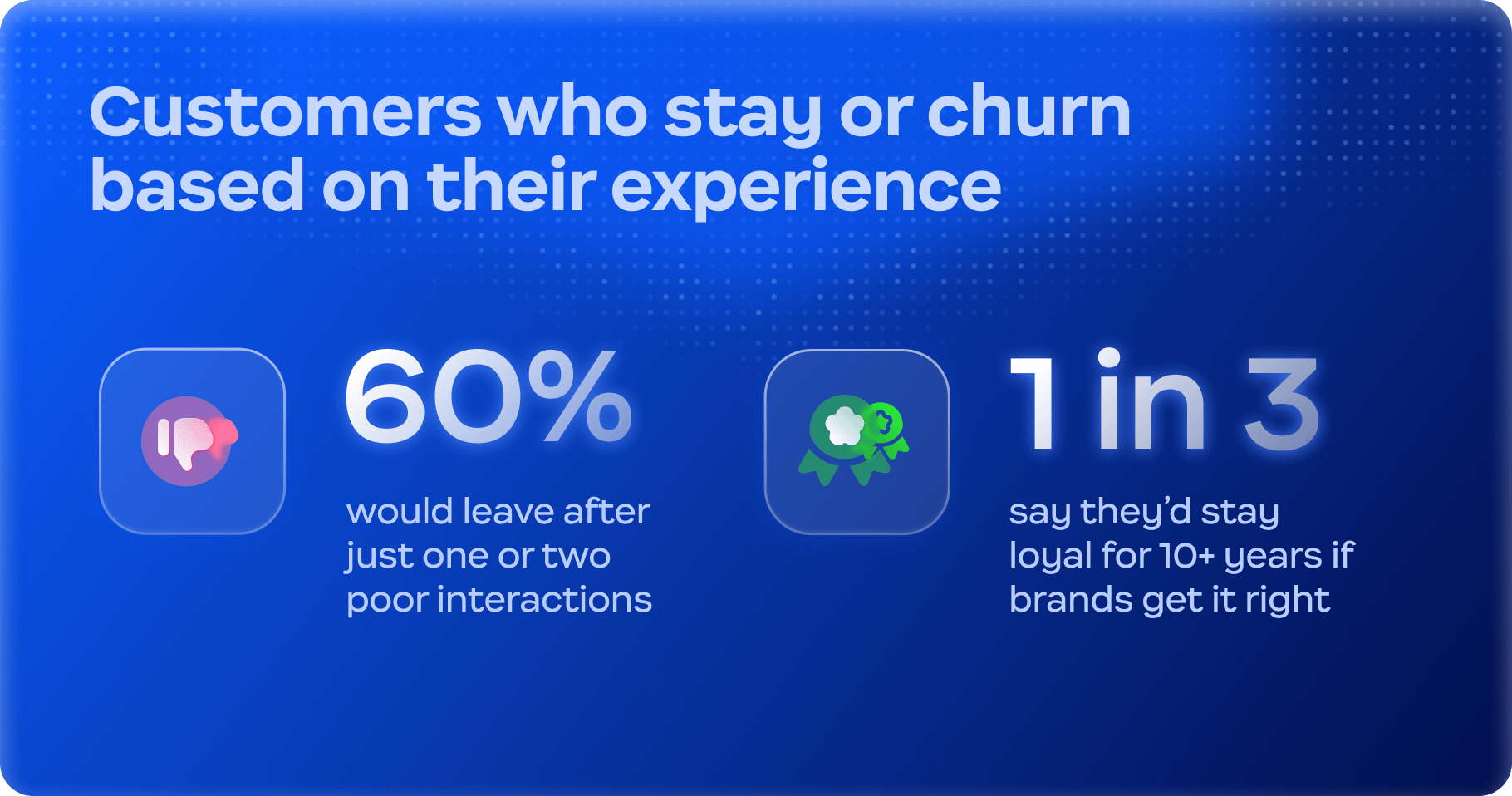
A bad experience can be due to many factors, including lack of speed and unhelpful agents, but not closing the loop and getting an issue resolved are high on the list. 82% share that inaccurate or unsatisfactory customer experience resolution would make them likely to stop buying from a brand, suggesting that this is a key reason for customers to make a shift.
What’s more, roughly three-quarters of customers are likely to share their experiences, whether they’re positive or negative, with friends and family. This indicates that taking the time and resources to examine customer retention strategies and make support memorable can be an invaluable way to improve brand perception and generate more business.
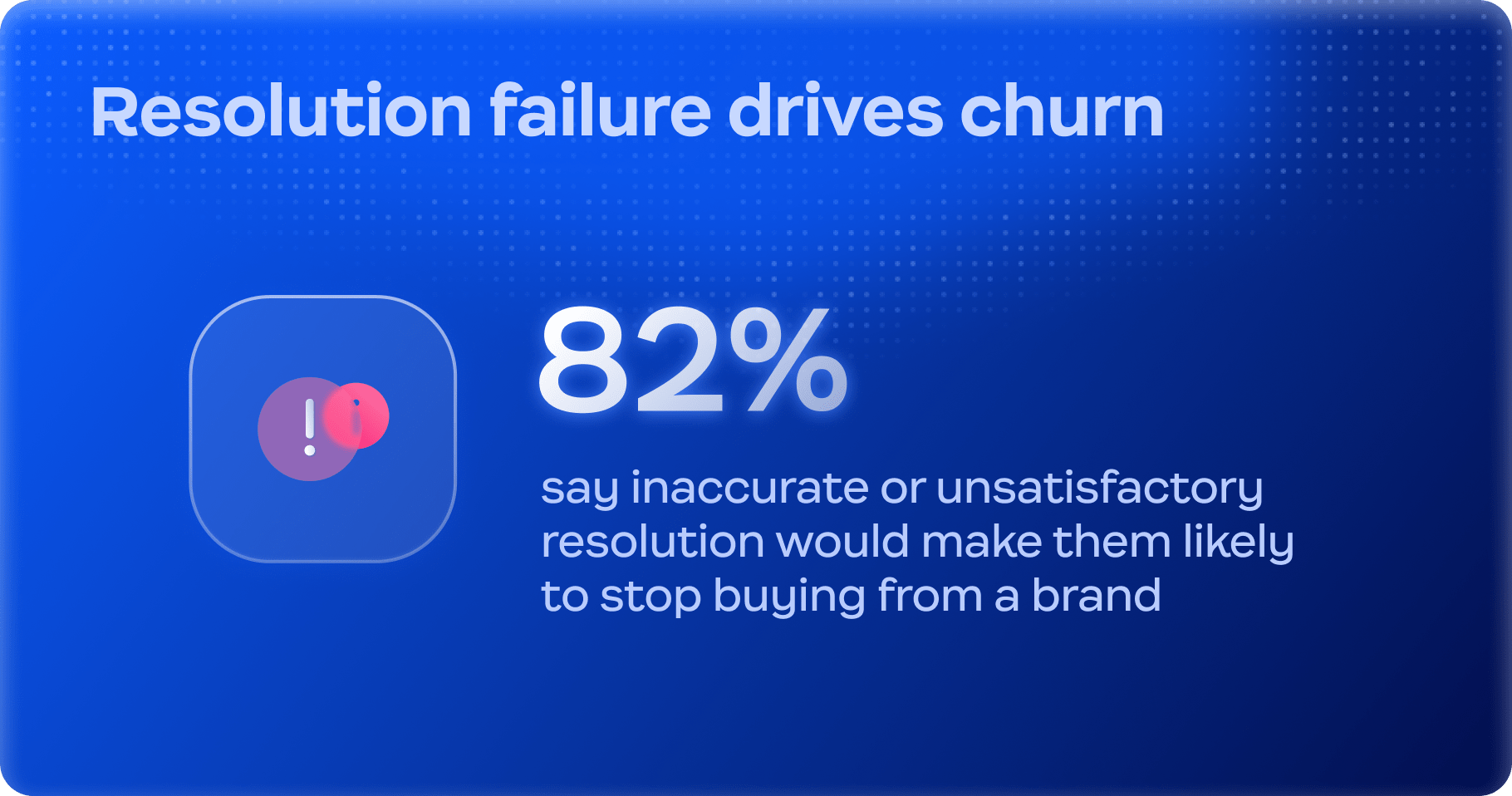
Speedy service will always be a front-runner in customer support experiences — people just want to get on with their day, after all. But if an issue isn’t resolved, it doesn’t matter how fast the service is. The research finds that the quest for better resolutions has made in-person service, live phone support, and email the most popular channels for customer support, but these aren’t necessarily the fastest.
The data shows that it’s much more about the interaction’s result than the channel itself. The issue lies in the technology’s inability to do what it’s supposed to. Case in point: the top frustration (43%) with chatbots and voicebots is that they fail to resolve the issue.
This shows that consumers want a fast resolution to their issues when they use self-service channels, but they’re not getting it. With 80% of those who've had success with bots preferring them at least some of the time, consumers are rejecting bots that don’t solve their problems, not bots themselves. In other words, they reject ineffective AI.
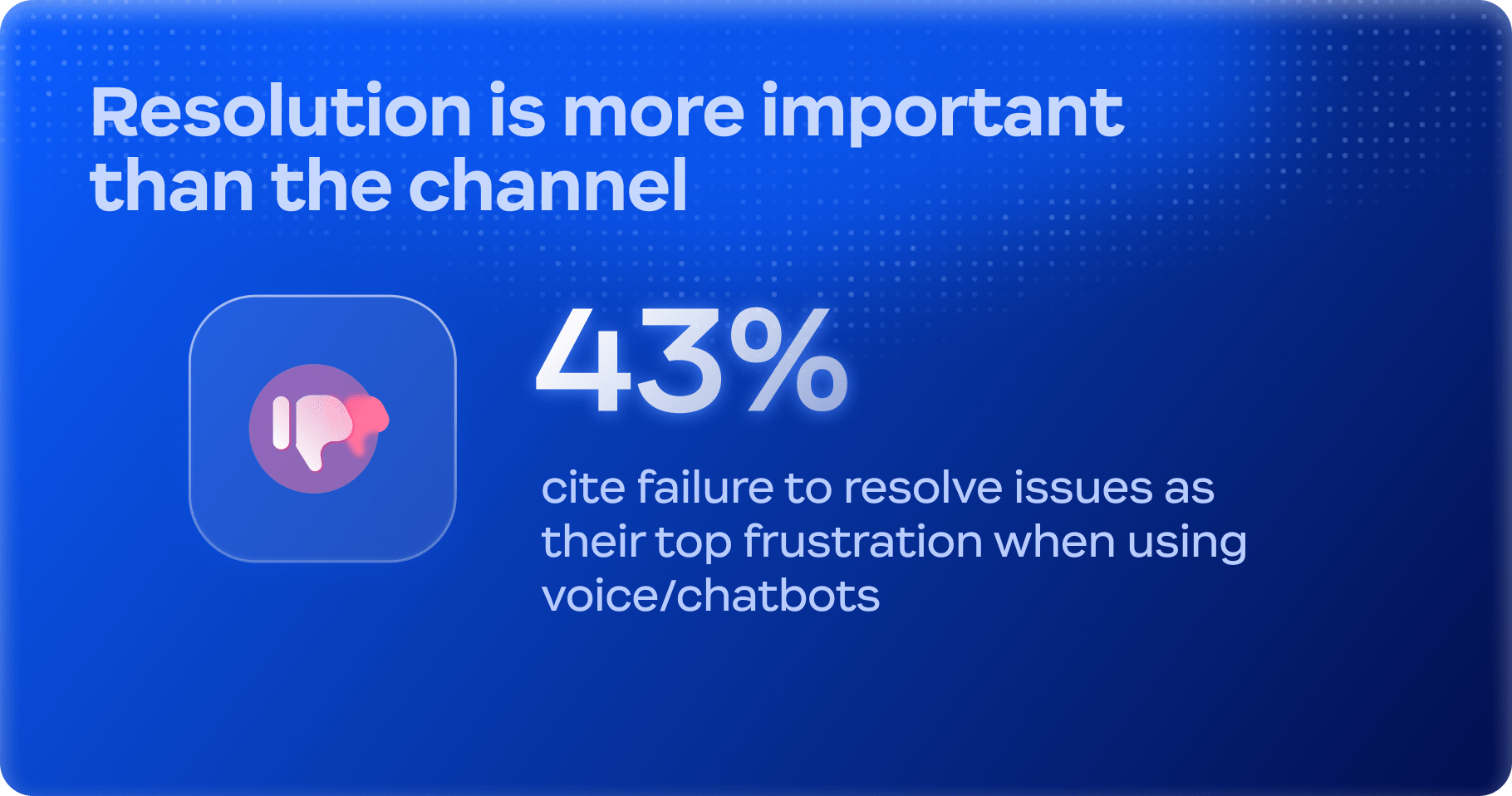
Consumers know what they want from self-service, but they're not getting it. There’s a delta of 34-46 percentage points between what consumers want and what bots currently deliver. For example, 81% expect bots to escalate to a human when needed, but only 38% say it happens.
This significant divide, and the other gaps our report identifies, suggest that there is vast room for improvement. CX leaders who dedicate some time to careful customer journey mapping will identify ways to uplevel their AI chatbot or voicebot, opening up the possibility of driving lasting brand loyalty.
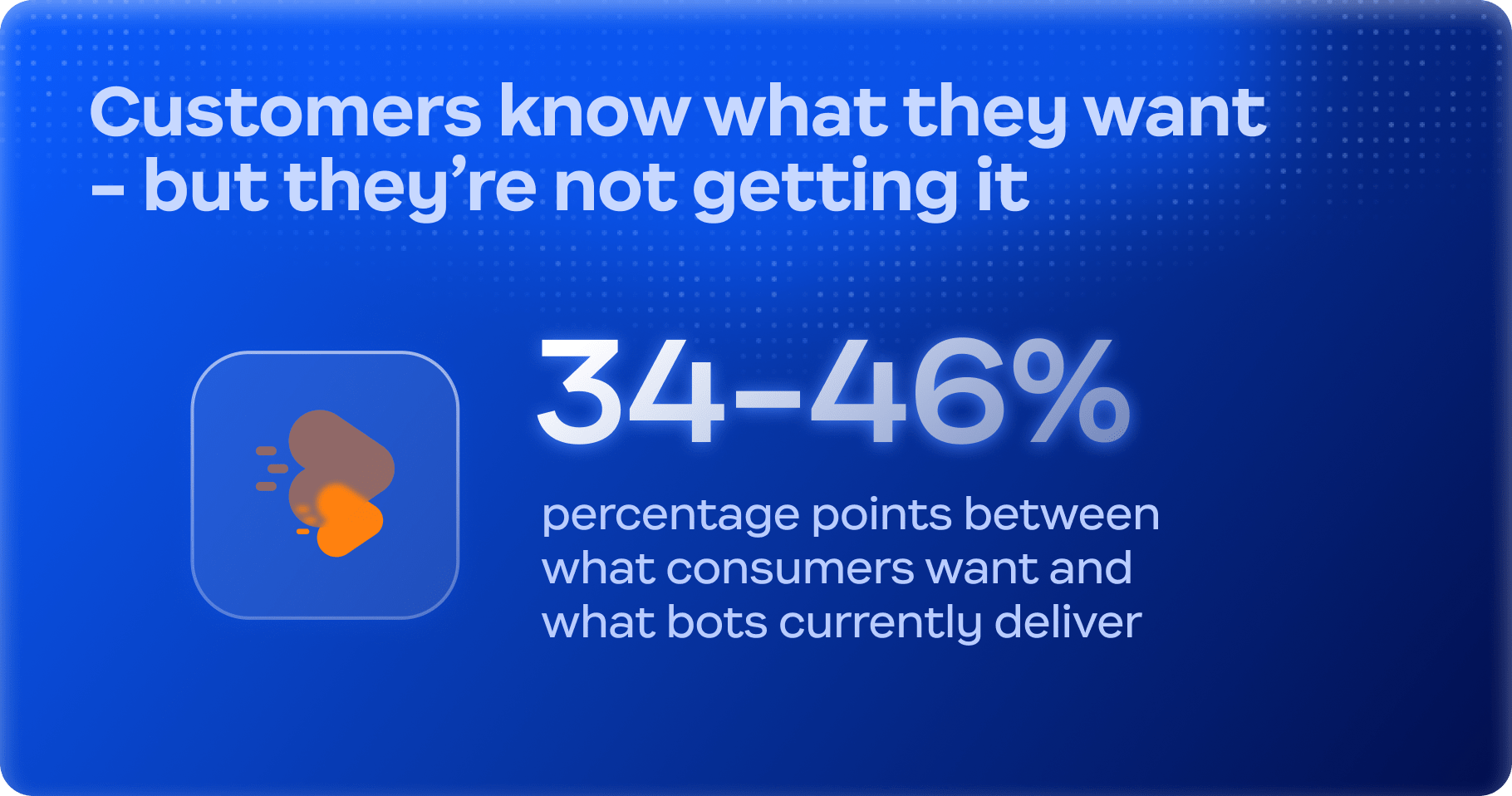
Data privacy is understandably a core issue for consumers, with 64% ranking it as a top concern. Again, it’s not necessarily the channel that worries consumers when it comes to security. In fact, 44% agree that chatbots and voicebots perform equally or better than human agents on privacy. Concerns typically increase according to the amount of personal information that’s required during an interaction.
A thoughtful and transparent approach with privacy and security is always crucial. Trust is a fundamental foundation of brand loyalty; taking shortcuts is never appropriate.
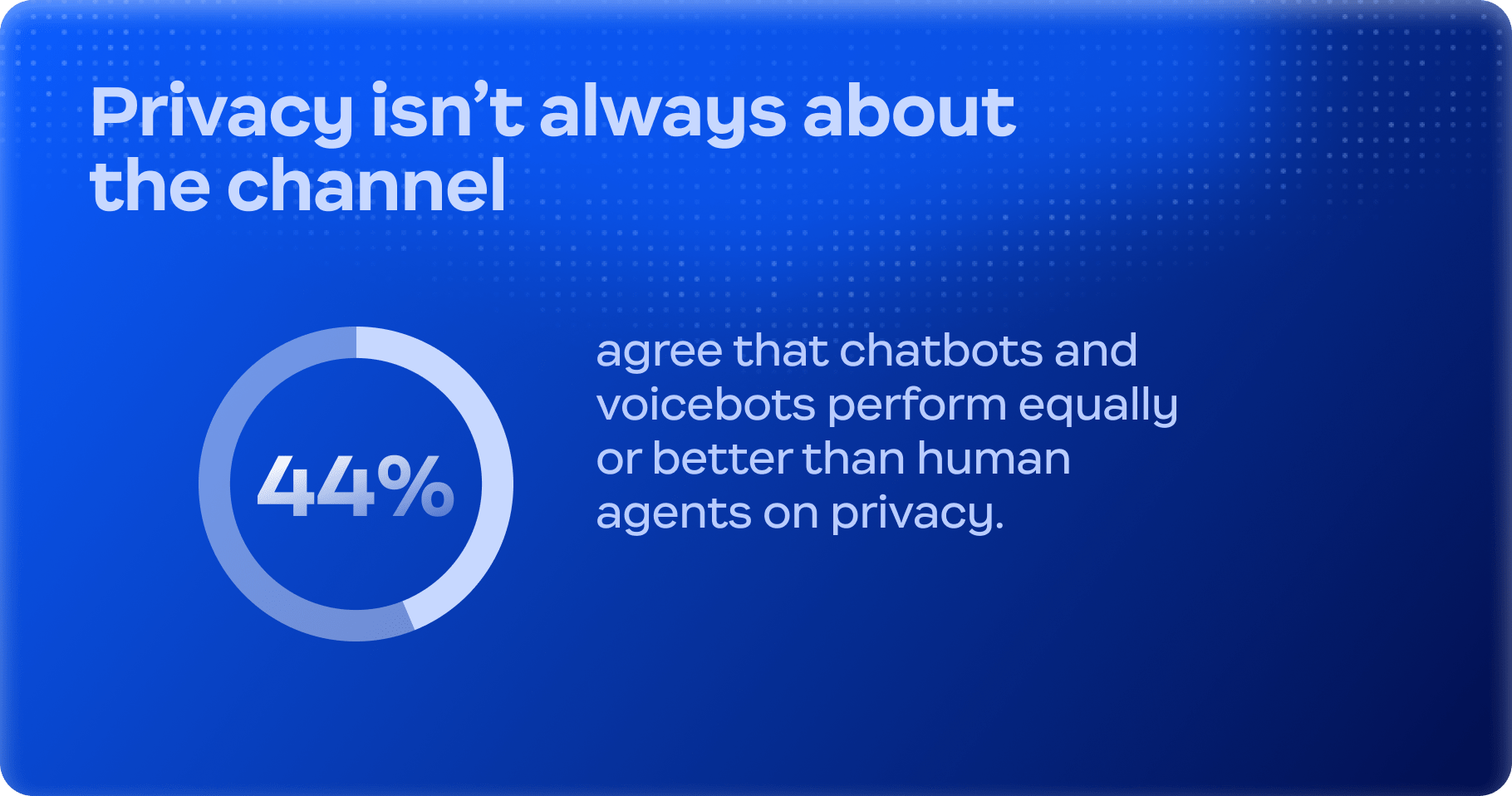
The bottom line: Spend some time on customer journey mapping and build your customer retention strategies with AI tools that deliver on resolution, not just speed. Add in a trusted vendor, like Zoom’s innovative, AI-first CX solution, and you can have a winning formula.
Take the first step in future-proofing your customer experience and get the full report today: AI alone won’t save CX. Resolution will.